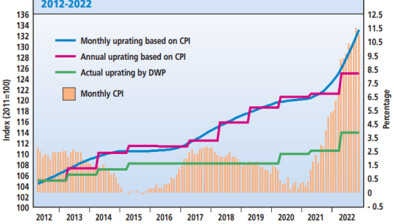England: Plans to increase social rents by CPI plus 1%

Chancellor Rachel Reeves is reportedly planning to increase social rents by more than inflation for the next 10 years to turbocharge efforts to build social homes.
According to the Financial Times (FT), Reeves is set to announce social rents can be raised annually by the Consumer Price Index (CPI) measure of inflation, currently 2.2%, plus 1% for the next decade. The formula is currently in use to set social housing rents but the current settlement is only set to run until 2026.
The current rent settlement is set at CPI + 1%, but expires in 2026 and affordable housing sector bodies have been calling for a new, long-term settlement.
The announcement, which is expected to be confirmed in Reeves’ first budget on October 30, comes after housing secretary Angela Rayner promised to “inject confidence and certainty into the social housing system”.
The Ministry of Housing, Communities and Local Government (MHCLG) said it was not able to confirm that there will be a 10-year rent settlement or provide additional information ahead of the budget.
A spokesperson from MHCLG said: “Work is ongoing to fix the foundations of our housing and planning system and we will set out our plans at the next fiscal event.”
James Prestwich, director of policy and external affairs at the CIH, said: “It is clear that ministers and officials understand a rent settlement needs to provide certainty to landlords and investors, enabling housing providers to plan investment in social homes over the long term.
“Of course, this must also be balanced by the need for social rents to remain affordable for people living in social housing.”
JRF’s senior economist, Rachelle Earwaker, said: “A secure, affordable home and a strong income safety net are fundamental to families’ economic security. They need to work together.
“In constrained times, the government has to balance the ability to build new social homes with social rents that families can afford. Getting this balance right is crucial if we’re to make any progress on building the necessary social homes to end our housing crisis. If we don’t, we’ll continue to see record numbers of children living in temporary accommodation because the right homes aren’t available.
“Restricting the social security benefits families receive, through policies like the benefit cap or because they have a spare bedroom, leaves them unable to pay their rent. Our social security system must cover rents for those on the lowest incomes and secure, affordable homes should be available for those that need them.”








